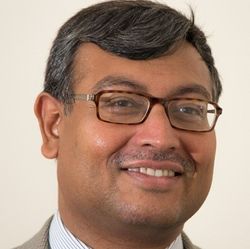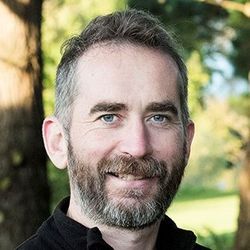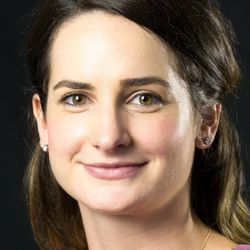Structures Research
Our Structures research group focus on three main themes: Design, Materials and Experimentation. Our research group are actively undertaking laboratory and field testing of structures, for example examining their behaviour response to vibrations, and developing methods of minimising structural damage and identifying methods of mitigation. We pride ourselves in the range of experimental, theoretical and demonstration work relating to traditional and innovative materials used in construction.
People

Prof. Biswajit Basu
Professor, Civil, Structural & Environmental Engineering
Email biswajit.basu@tcd.ie Phone+353 1896 2389 Full ProfileResearch Expertise
Nonlinear Waves, Hydrodynamics, Mathematical Oceanography, Nonlinear Analysis, Renewable Energy Technologies, Smart Grid, Wind Energy, Offshore Wind Turbines, Wave Energy, Structural Health Monitoring, Passive, Active and Semi-active Vibration Control, Random Vibrations, Wind & Earthquake Engineering, Time-frequency and Wavelet Analysis, Non-stationary Processes, Traffic Flow Theory and Control
Awards and Honours
- Best conference paper award in the 6th International Conference on Condition monitoring, British Institute of Non-Destructive Testing, Dublin, IrelandJune 2009
- Best conference paper on 'Soil Dynamics' in the 13th Asian Regional Conference on Geotechnical Engineering, International Society of Soil mechanics and Geotechnical Engineering (ISSMGE), Calcutta, IndiaJan 2007
- Best paper award in the Proceedings of the Society of Earthquake and Civil Engineering Dynamics, SECED, Bath, UK2005
- Best conference paper in the 7th Railway Engineering Conference, London, UK2004
- Dr K.S.Krishnan Research Fellow Award2004
- Guest Professor, Aalborg University, DenmarkJuly - Aug 2011
- Visiting Scholar, Rice University2004 & 2005
- Phil Doak Award, J Sound & Vibration2015
Memberships
- Member IEI2002
- Member ASCE2006
- Member ASME2006
- Member IEEE2007

Professor Brian Broderick
Professor of Civil, Structural and Environmental Engineering
Email brian.broderick@tcd.ie Phone+353 1896 2348 Full ProfileResearch Expertise
The central objective of my research is protection of the built environment, of human health and of climate. I protect civil society by studying interactions between engineered and natural systems. Hence, my key research projects have developed improved methods for protecting buildings and their occupants during earthquakes, for protecting the health of individuals from exposure to air pollution and for protecting the climate through renewable energy production. My primary research approach is the integrated mathematical-information modelling of complex systems, especially the effects of environmental loads (earthquake and wind) on engineering structures, and the effects of anthropogenic emissions (e.g. road transport) on air quality. My research is highly multidisciplinary, and I have achieved research breakthroughs by exchanging ideas and methods between diverse fields. Hence my research spans disciplines from atmospheric science to solid mechanics, and the research methods I employ include computational modelling, numerical simulation, experimental investigation and engineering design. I have collaborated and published with researchers from a wide variety of fields including engineers, environmental scientists, physicists, economists, clinicians, health scientists and seismologists. My research strengths in integrating information about real world processes with physical theory based mathematical models have allowed me to transform conventional approaches to globally important activities and achieve real impact through the generation of knowledge alongside my contributions to broader society. My research has made a unique and substantive contribution to a wide field and has had a high impact on policies and practices supporting societal protection, sustainable development, and economic efficiency. The main pathway for these contributions has been through the development of modelling tools that support innovation. For example, I have developed advanced air quality forecasting models to protect the health of vulnerable people, promoted renewable energy by creating methods for the simulation of the dynamic response of wind turbines, and extended urban resilience by improving the design of earthquake-resistant building structures. I have a sustained track-record of research achievement, having been awarded major research grants from several national (e.g. IRC, EPA) and international programmes (e.g. EU FP5-7, H2020), and maintained substantial research teams (PhD students, postdoctoral researchers and PIs) for over two decades. I have led multi-partner, multi-project European and national research programmes in more than one topic. I have published widely in fora that reach both scientific and professional engineering communities. As evidence of research leadership, I led the formation of the consortium recently awarded the National Construction Technology Centre by Enterprise Ireland. The lead PIs in all the other universities in this consortium completed their PhDs under my supervision or within our research group at Trinity. With initial platform funding of €5m, `ConstructInnovate" will contemporise the Irish construction industry. In the field of air quality, in which there had been almost no research activity before I joined Trinity, I have founded and led a research group that has published over 100 journal articles and won over €10M in research grants. As Associate Dean of Research and PI on the CHARM-EU TORCH project I am developing new University policies and strategies in Responsible Research and Innovation to ensure that Trinity remains at the forefront of European research practice.

Professor Alan O'Connor
Chair of Structural Engineering/Head of School
Email alan.oconnor@tcd.ie Phone+353 1896 1822 Full ProfileBiography
Dr. Alan O'Connor is a Professor in the Dept. of Civil, Structural and Environmental Engineering at Trinity College Dublin, Ireland. He is a Fellow of that institution (FTCD). He is also a Chartered Engineer (CEng) and Fellow of the Institution of Engineers of Ireland (FIEI).
He has extensive national/international experience in risk and resilience analysis of critical infrastructure, asset lifecycle performance optimisation, code development/calibration and in probabilistic safety assessment. He has advised clients such as: Irish Rail, Transport Infrastructure Ireland, The Danish Roads Directorate; Danish Railways; Swedish Railways; The Norwegian Roads Authority, The Dutch Ministry of Transport, Public Works and Water Management and the World Bank. At Trinity College Dublin, the research group which he leads are focused on investigating: infrastructural asset management and probabilistic safety assessment, risk and resilience analysis of critical infrastructure elements and systems, statistical load modelling, structural health monitoring, stochastic modelling of engineering systems, engineering for extremes and structural reliability analysis. He has authored over 250 academic papers in these areas. He has delivered Keynote Addresses at international conferences in Europe, the United States and Australia.

Dr. Julie Clarke
Assistant Professor, Civil Struct & Env. Eng.
Email julie.clarke@tcd.ie Phone+353 1896 8053 Full ProfileBiography
Dr. Clarke's research focuses on risk and the built environment. She conducted her PhD entitled "Risk Assessment for Masonry Buildings due to Tunnelling-Induced Settlement" at University College Dublin. Since then, her research has focused on vulnerability and risk modelling for critical infrastructure networks due to natural hazards and climate change impacts. Dr. Clarke led the implementation of a novel quantitative risk methodology to determine the losses for two case study regions in Europe due to extreme hazard events, as part of the INFRARISK EU-funded H2020 project. More recently, she acted as Principal Investigator for the EPA-funded TACT project, which developed a risk assessment framework to quantify the costs of climate change impacts and adaptation strategies for land and maritime transport networks in Ireland.

Dr. Dermot O'Dwyer
Associate Professor, Civil, Structural and Environmental Engineering
Email dermot.odwyer@tcd.ie Phone+353 1896 2532 Full ProfileBiography
Dermot O'Dwyer graduated with a 1st Class Honours degree in Civil Engineering from UCG in 1989. In 1991 he completed a research masters on the limit-state analysis of masonry vaults. From 1991-1993 he worked as a structural engineer design structures varying from water towers and treatment tanks to multi-storey apartments and industrial buildings in a variety of materials. He became a chartered engineer in 1993. In 1993 he joined Irish Rail. Within Irish Rail he worked in the technical office working on a range of topics from the development of new switch geometries to budget planning. While in Irish Rail he was seconded to the Light Rail office. In 1995 he joined the Department of Civil, Structural and Environmental Engineering in Trinity College Dublin. He was awarded a PhD in 2001 for the thesis "The Application of Genetic Algorithms to Civil Engineering Optimisation Problems".

Dr. Sara Pavia
Associate Professor, Civil, Structural and Environmental Engineering
Email sara.pavia@tcd.ie Phone+353 1896 2516 Full ProfileBiography
- Associate Professor Dept. of Civil Engineering. Trinity College Dublin. 2012 Present
- Assistant Professor Dept of Civil Engineering. Trinity College Dublin. 2002 2012
- Post doctoral Research Fellow Faculty of Built Environment, Dublin Institute of Technology. 1997 2002
- Post doctoral Research Fellow Trinity College Dublin. 1994 1997
- External Lecturer Trinity College Dublin, Dept. of Civil Engineering. 1996 2002
- External Lecturer University College Dublin, School of Architecture. 1996 2012
Research Expertise
Sustainable Building

Professor Roger West
Professor, Civil, Structural and Environmental Engineering
Email roger.west@tcd.ie Phone+353 1896 1832 Full ProfileResearch Expertise
Concrete Technology: impact, diffusion, rheology, fibre-reinforcing, recycled paper waste. Construction: innovative methods and materials, e-procurement. Structural Mechanics: vibrations and stability of partially piles, structural optimisation.
Awards and Honours
- Lifetime Achievement Award, Civil Engineering Association of IrelandAugust 2018
- Best Paper Award, Civil Engineering Research Association of Ireland, 2016August 2016
- Global Engagement Award, Trinity College Dublin, 2015August 2015
- UKIERI Congress Distinguished Academic Award in March 2019
Memberships
- Chartered Engineer, Institution of Engineers of IrelandMarch 1995 – Present
- Fellow of Institution of Engineers of Ireland2003 – Present
- Corporate Member of Irish Concrete Society
- Member of Construction Information Technology Alliance (CITA)2000 – Present
- Member of the Institution of Concrete Technology, UKSept 1993 – Present

Dr. Breiffni Fitzgerald
Assistant Professor, Civil, Structural and Environmental Engineering
Email breiffni.fitzgerald@tcd.ie Phone+353 1896 1146 Full ProfileBiography
Dr Breiffni Fitzgerald received the B.A.I. and Ph.D. degrees in Civil and Structural Engineering from Trinity College Dublin in 2009 and 2013, respectively. He was a Research Fellow with Trinity College Dublin from 2013 to 2014 and a Lecturer with the Technological University of Dublin from 2015 to 2016. He is currently an Ussher Assistant Professor in Energy in the School of Engineering, Trinity College Dublin. His research interests include wind turbine aerodynamics and structural dynamics, dynamics and damping of structures, wind engineering, vibration control, and control theory. He has received funding to work in these areas from Science Foundation Ireland, the Irish Research Council, Enterprise Ireland, H2020, Sustainable Energy Authority of Ireland and industry partners.
Dr Fitzgerald is a Chartered Engineer of the Institution of Engineers of Ireland. He has been appointed by the National Standards Authority of Ireland (NSAI) as a technical expert for the development of Structural Eurocode EN 1991-1-4: Wind loads. Dr Fitzgerald has also been appointed by the International Energy Agency (IEA) to serve as Ireland's international expert on Wind Farm Control.

/prod01/channel_3/media/tcd/civil-engineering/img/structures.jpg)